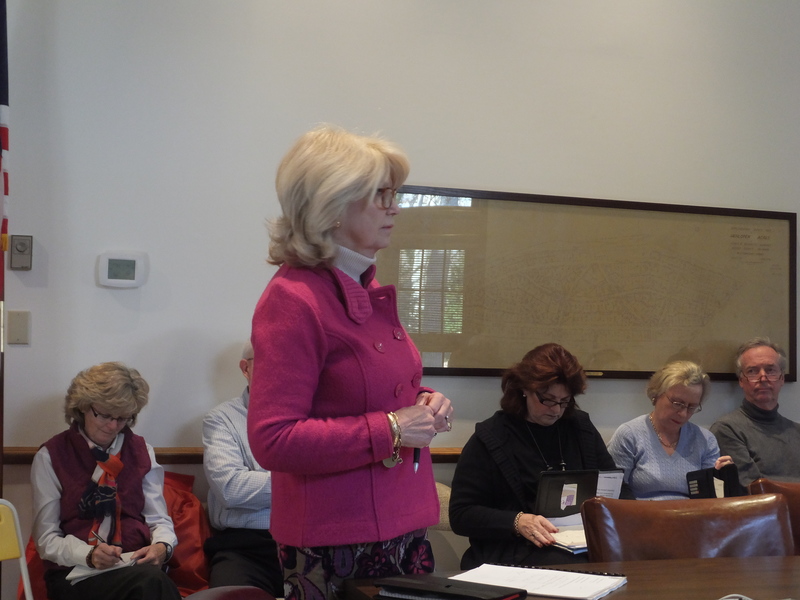Acres planners send comp plan to commissioners

The Henlopen Acres Planning Commission unanimously approved sending a draft 2014 comprehensive development plan to the city commissioners, but state officials have already told the commission the plan will not be certified until it addresses the zoning of Rehoboth Art League.
While the art league zoning has created on-going controversy, planning commission Chairman John Scheurer said the town is asking for feedback on other matters from the state’s Preliminary Land Use Service, or PLUS.
Still at issue is the art league’s zoning classification. The league is in an area zoned residential, but is a legal, nonconforming use. However, any changes to the existing buildings must conform with residential building regulations or the league must get a variance.
A variance was what the art league attempted to get in 2007, when it sought to rebuild the Chambers Studio. The league was denied a variance and eventually took the case to Delaware Superior Court, which upheld the town board of adjustment's decision. An appeal to Delaware Supreme Court also went in the town's favor. The art league eventually settled on a vastly scaled down remodeling of the studio.
The art league has asked to be rezoned to a special zoning classification that would spell out the uses of the property and allow for the league to better maintain its facilities. League President Diana Beebe read a letter at the planners’ Dec. 1 meeting, reiterating the league’s desire for new zoning.
The art league predates the town's incorporation in 1970, and Beebe said the dispute between the league and the town over the zoning has been going on for nearly 30 years.
She said the league has made a good faith effort to cooperate with the town and neighbors, limiting the activities that take place on campus and creating satellite campuses to help offset parking and traffic concerns. Beebe said the art league has also created a campus master plan to address other concerns.
Scheurer said if the plan were to include a special designation for the art league in its zoning maps, the town would have 18 months to make an official zoning change.
“Why put a gun to the town’s head when the town doesn’t want to do anything at this point?” he asked.
Scheurer said there have been 12 meetings with the art league over the zoning issue, but no satisfactory compromise has emerged.
That was still not good enough for State Planning Director Connie Holland, who advised the commission not to send the plan for PLUS review without addressing art league zoning. Holland said the plan does not meet Delaware code because of the art league’s legal nonconforming status.
“To me, it's arbitrary and capricious that you’re treating one entity so much different than the others,” Holland said. “You need to put a designation on that map and let the art league know what the rules and regulations are.”
She told the commission that if the plan is sent to PLUS as is, it would not be certified.
Scheurer suggested sending the rest of the plan to the state for review, while continuing to work on art league zoning.
Commissioner Bob Reed said the state was inserting itself in the town’s decision-making process. Reed said the town shouldn’t roll over.
“I’m not disputing that there’s not an issue. But I don’t see how Dover is helping to resolve it. They may be forcing us to a resolution,” he said.
Mark Dunkle, attorney for the art league, suggested changing wording in the plan to read that the art league is a legal permitted use instead of a nonconforming use as stated under the town’s Ordinance No.1, the first law passed by the town, which is still in effect. Dunkle said this would help address some of the zoning problems in the plan.
Town Solicitor Glenn Mandalas said Dunkle’s approach was novel and that he would need to research the matter further.
Ryan Mavity covers Milton and the court system. He is married to Rachel Swick Mavity and has two kids, Alex and Jane. Ryan started with the Cape Gazette all the way back in February 2007, previously covering the City of Rehoboth Beach. A native of Easton, Md. and graduate of Towson University, Ryan enjoys watching the Baltimore Ravens, Washington Capitals and Baltimore Orioles in his spare time.






















































